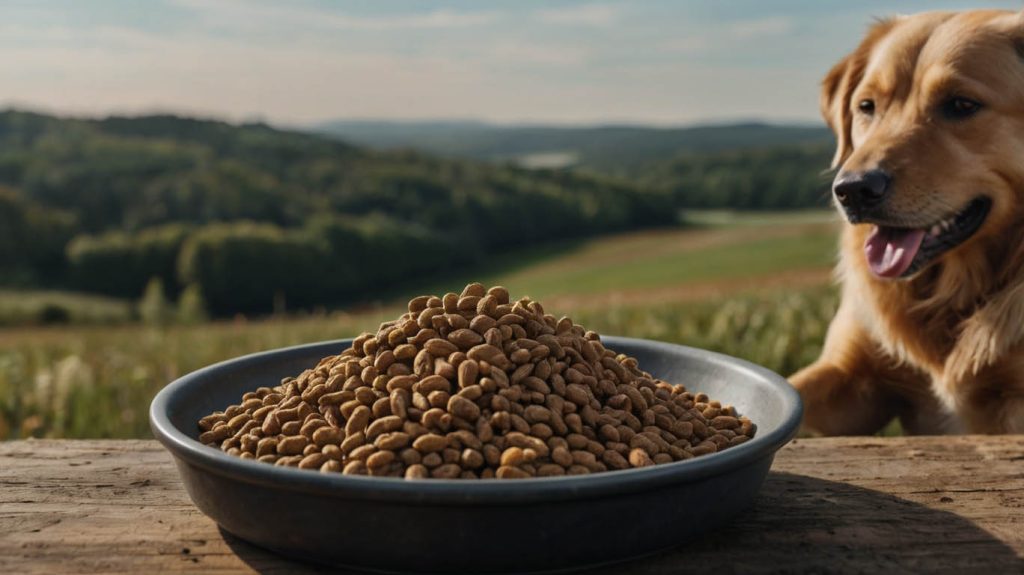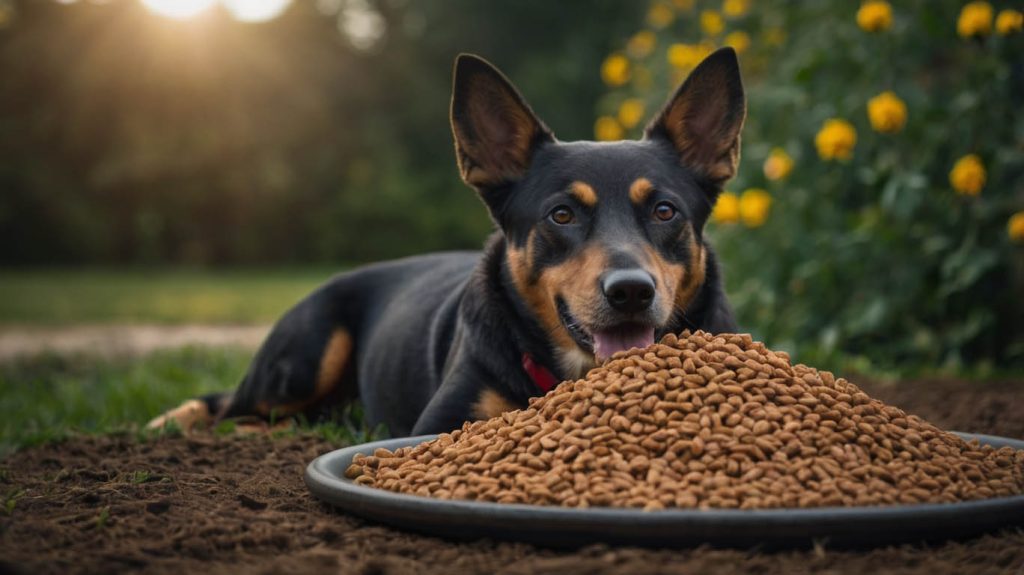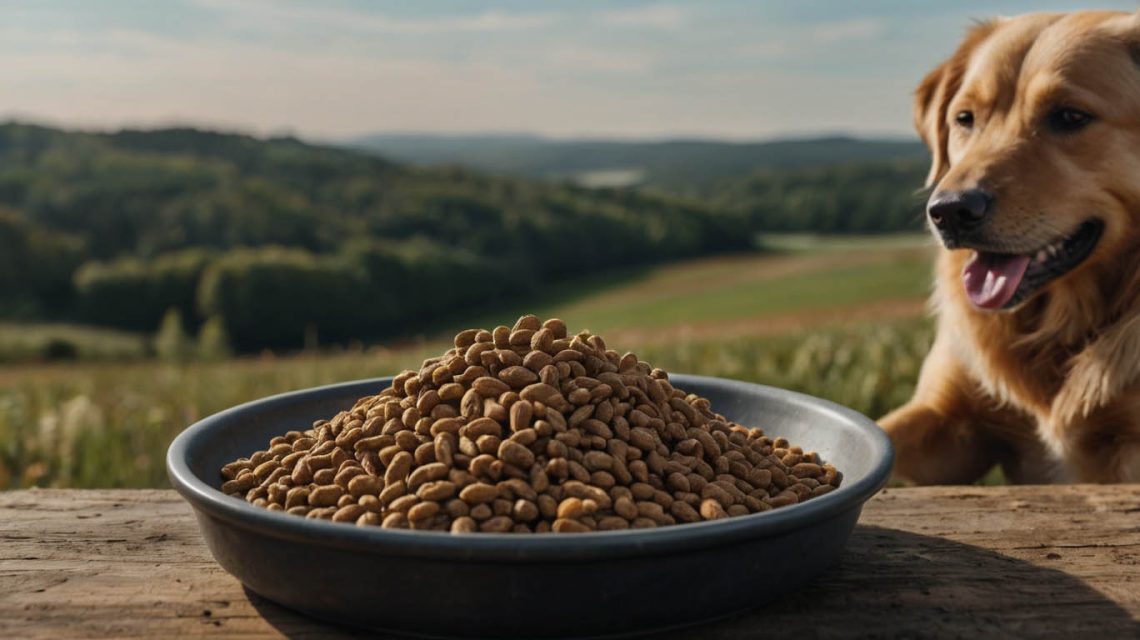Advantages of Grain Free Dog Food: The Ultimate Guide for Pet Parents
Jessica watched her West Highland Terrier, Leo, relentlessly chew at his paws again. His once-bright white coat was dull, his skin was flaky and red, and his chronic ear infections were a constant battle. She had tried everything from medicated shampoos to supplements, but nothing provided lasting relief. A friend at the dog park swore that switching her own itchy dog to a grain-free diet had been a miracle. Intrigued but cautious, Jessica went online, only to be hit by a tidal wave of conflicting articles and strong opinions. She was left feeling completely lost, asking a single, crucial question: what are the real advantages of grain free dog food, and could they finally help Leo?
Jessica’s story is one that many dedicated dog owners can relate to. When your pet is uncomfortable, you will move mountains to find a solution. The promise of a simple dietary fix is powerful, yet the controversy surrounding grain-free diets can make the decision feel overwhelming.
Consequently, this definitive guide is designed to cut through the noise. We will explore the science, detail the potential advantages of grain free dog food, address the significant risks, and provide a balanced, authoritative perspective. Therefore, you can make an informed decision for your dog’s health and well-being.
What Are the Potential Advantages of Grain Free Dog Food?
For years, pet owners have turned to grain-free diets in hopes of resolving various health issues. While these diets are not a cure-all, they can offer specific benefits for the right dog. Let’s explore the most commonly cited advantages.

Alleviating Food Allergies and Sensitivities
This is the number one reason owners like Jessica consider making the switch. For a dog with a true grain allergy, the benefits of a grain-free diet are immediate and life-changing. Removing the offending grain (like wheat or corn) can lead to a dramatic reduction in symptoms such as:
- Chronic itching, scratching, and paw licking
- Red, inflamed skin, rashes, or hives
- Recurring ear and skin infections
- Gastrointestinal upset like gas, loose stools, or vomiting
However, it is critical to understand that true grain allergies in dogs are relatively rare. According to veterinary dermatologists, dogs are much more likely to be allergic to a protein source in their food, such as chicken or beef.
Promoting Better Digestion and Gut Health
Many premium grain-free dog foods replace common grains with alternative carbohydrate sources like sweet potatoes, peas, chickpeas, and lentils. For many dogs, these ingredients can be more easily digestible than traditional grains like corn or wheat. One of the most frequently reported advantages of grain free dog food is an improvement in digestive health. Owners often notice smaller, firmer, and less frequent stools, which indicates their dog is absorbing more nutrients from their food and producing less waste.
Supporting Healthier Skin and a Shinier Coat
This is another significant, though often indirect, benefit. The best grain-free foods are typically formulated with high levels of quality animal proteins and fats. These recipes are often rich in essential fatty acids like Omega-3 and Omega-6, derived from sources like salmon oil, fish meal, and flaxseed. These fatty acids are vital for nourishing the skin barrier and promoting a lustrous, shiny coat. Therefore, the improved coat might not be due to the absence of grains, but rather the presence of these high-quality fats.
Supporting Lean Muscle Mass and Healthy Energy Levels
A key feature of many grain-free diets is a higher protein content. By replacing a portion of the carbohydrates with high-quality animal protein, these foods can help support the development and maintenance of lean muscle mass. This can be particularly beneficial for active breeds, working dogs, and canine athletes who require sustained energy and strong muscles.

The Important Controversy: A Balanced Look at the Advantages of Grain Free Dog Food
It is impossible to discuss this topic responsibly without addressing the significant controversy that has emerged in recent years. Understanding this is crucial for making a safe choice for your pet.
The FDA Investigation and Dilated Cardiomyopathy (DCM)
In 2018, the U.S. Food and Drug Administration (FDA) began investigating a potential link between certain diets—many of them labeled “grain-free”—and a serious heart condition in dogs called Dilated Cardiomyopathy (DCM). DCM is a disease where the heart muscle weakens and enlarges, leading to decreased pumping ability and, potentially, congestive heart failure.
The investigation noted that many of the reported cases involved dogs eating diets where legumes like peas, lentils, or potatoes were listed as primary ingredients instead of grains. This raised concerns that these ingredients might interfere with a dog’s ability to absorb or synthesize taurine, an amino acid essential for heart health.
It’s crucial to know that the FDA has not found a definitive cause and has not recommended that all owners avoid grain-free diets. The issue is complex and research is ongoing. However, this potential risk must be carefully weighed against the perceived advantages of grain free dog food.
The Concern Over “BEG” Diets
The term “BEG” (Boutique, Exotic-ingredient, Grain-free) arose from this investigation. It describes foods from smaller, boutique companies, often using unusual protein sources (like kangaroo or bison), that are also grain-free. The concern is that some of these companies may lack the extensive nutritional research and feeding trials conducted by larger, well-established brands.
Is Exploring the Advantages of Grain Free Dog Food the Right Choice for Your Pet?
The decision to go grain-free should be based on your individual dog’s needs and made in partnership with your veterinarian.
When to Consider the Advantages of Grain Free Dog Food
- A Confirmed Grain Allergy: If your veterinarian has conducted tests and diagnosed a specific allergy to a grain like wheat or corn, a grain-free diet is a necessary and beneficial treatment.
- During an Elimination Diet Trial: A veterinarian may prescribe a grain-free diet with a single novel protein (like duck or rabbit) to systematically rule out ingredients and identify the true cause of an allergy.
- For Dogs with Known Sensitivities: Some individual dogs simply thrive on a grain-free diet, showing marked improvement in their digestion, skin, and energy levels.
When to Be Cautious About the Advantages of Grain Free Dog Food
- If you own a breed predisposed to DCM: Breeds like Golden Retrievers, Dobermans, and Great Danes are at higher risk. The potential DCM link warrants a serious conversation with your vet before switching.
- If you are choosing a “BEG” diet: Be diligent. Research the company. Do they employ a full-time veterinary nutritionist? Do they perform AAFCO feeding trials? Choose brands that invest heavily in science and safety.
A Case Study Resolved: How Jessica and Leo Found Relief
Let’s return to Jessica and her itchy Westie, Leo. Feeling overwhelmed by her online research, Jessica made the best possible decision: she booked an appointment with her veterinarian.
The vet explained that while a grain allergy was a possibility, a protein allergy (like to chicken) was statistically more likely. Instead of immediately jumping to a grain-free diet, the vet first recommended a food with a novel protein (duck) that also happened to be grain-inclusive. After six weeks, Leo’s itching had improved, but not disappeared.
As the next step in their diagnostic journey, the vet suggested trying a well-formulated, grain-free version of a duck recipe from a reputable company. Jessica made the switch. Within a month, the change was dramatic. Leo’s relentless scratching stopped, his skin cleared up, and his coat started to grow back soft and white. For Leo, the combination of a novel protein and a grain-free formula was the key. Jessica had finally realized the advantages of grain free dog food for her specific dog, but she had arrived at the solution safely, as a partner with her vet.
The Final Verdict: A Powerful Tool, Not a Universal Solution
The advantages of grain free dog food can be profound for the right dog. For a pet with a true grain allergy or sensitivity, it can offer incredible relief and a new lease on life. However, it is not an inherently “better” diet for every dog. The potential risks and unresolved questions mean that this decision must be made thoughtfully and with professional guidance.
Your dog’s health is a journey you share with your veterinarian. Always consult with them before making any significant changes to your dog’s diet. They can help you navigate the complex world of canine nutrition and make the safest, most informed choice for your beloved companion. What has been your experience with grain-free diets? Share your story in the comments below!


